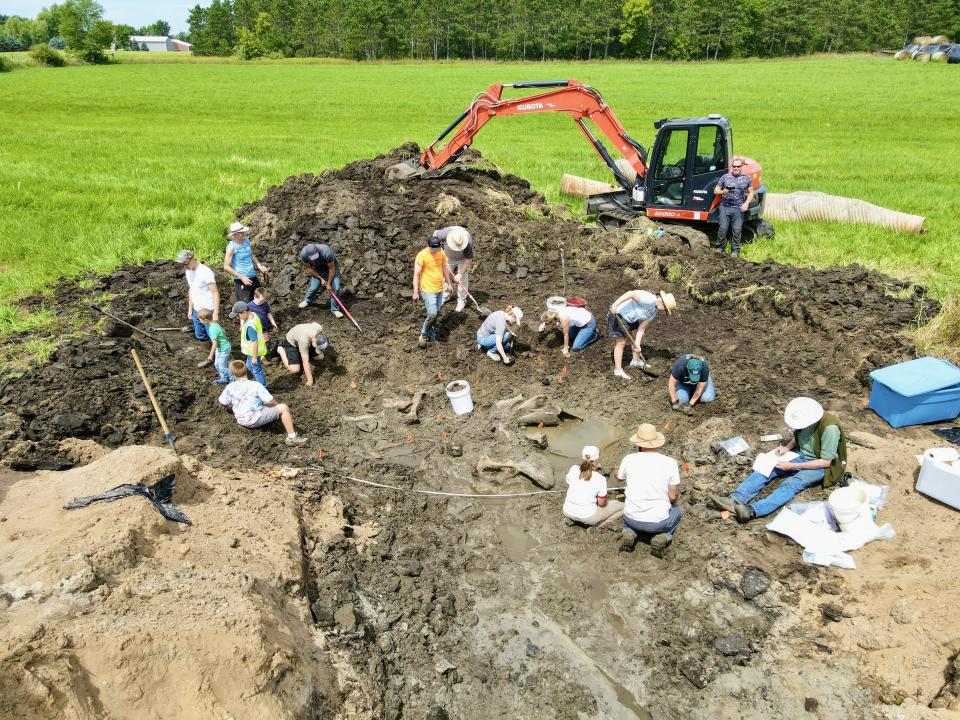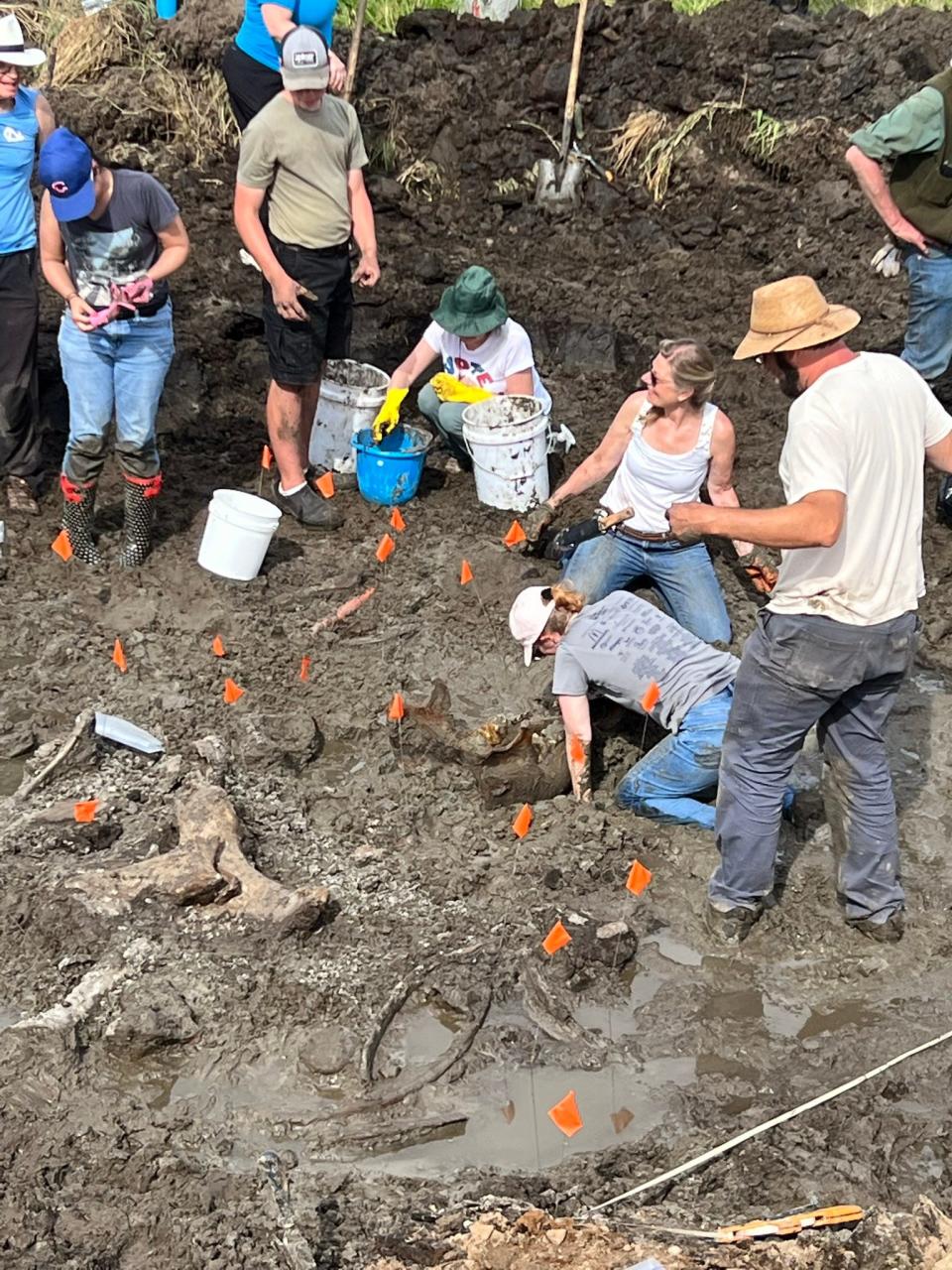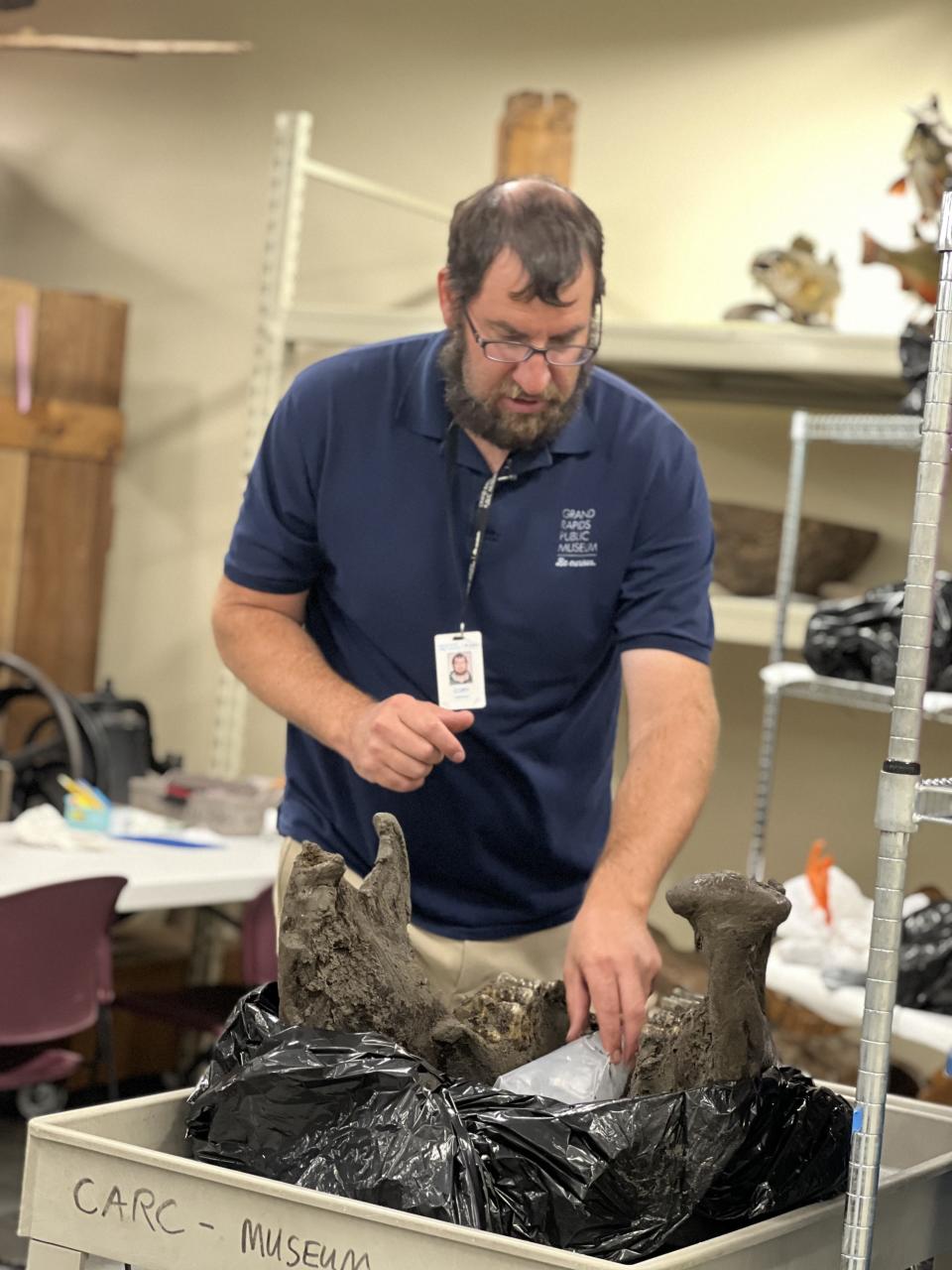Skeleton of 'really unique' mastodon unearthed in Kent County 'about 40-60% complete'
It's been a hot, steamy summer so far in Michigan, but road crews in Kent County are digging up remnants from the Ice Age and, with any luck, they hope to find even more pieces of the puzzle.
The bones of a "really unique" mastodon skeleton found at a road construction site in Kent County on Thursday are on their way to Grand Rapids Public Museum's archive research center to be preserved and studied.

Dr. Cory Redman, the museum's science curator, was contacted about the bones after Kent County Drain Commissioner Ken Yonker emailed Grand Valley State and the University of Michigan. He and other experts initially thought that it was just a couple of bones, but were shocked to discover otherwise.

“It’s not that often that you find a skeleton this complete, it’s probably about 40%-60% complete just based on initial field assessment and so when we got there and we realized there was a lot more to the animal, we were really excited about it," Redman said. "One of the things that makes this find really unique besides being local is all the bones appear to come from a single juvenile mastodon."

"Mastodon," refers to a wide variety of extinct elephant-like creatures, and are distant cousins of mammoths, according to the National Park Service.
The team found a lower jaw bone, ribs, vertebrae, and lots of leg bones, but Redman and other paleontology experts are hoping that a skull and husks are found while the site is still under construction.
These are far from the first mastodon bones found in Michigan, as there has been over 300 confirmed mastodons found in the Mitten state, said Daniel Fisher, professor of paleontology and director of the University of Michigan Museum of Paleontology, in 2016.

The creatures roamed Michigan 10,000 to 14,000 years ago during the Ice Age as the Lower Peninsula broke off from the Upper Peninsula.
"We may or may not find it, but they’re not done digging yet," Redman stated. “We don’t know how old the bones are yet, we’ll have to try to radiocarbon date them, but they’re at least over 11,000 years old because mastodons went extinct at the end of the last age," Redman said. "We won’t be able to know how old that particular skeleton is, because it could be much older than that."
More: Detroit youths launch rowboats they helped build at Riverside Marina
More: Kids build military-style bunker in Rogue River State Game Area, DNR says
The process of drying and studying the bones could take over a year, but afterward, they will be on display at the Grand Rapids Public Museum for the public to enjoy.
Michigan is known to be a fossil "hot spot," said fossil enthusiast David Thompson, who is a member of a large variety of fossil clubs in the Michigan region (including but not limited to Friends of the University of Michigan Museum of Paleontology, North Coast Fossil Club and Dry Dredgers).
According to Thompson, Michigan used to be under an ancient ocean about 365 million years ago during the Devonian period. The water from the ocean promoted the preservation of fossils.
Following this period, Michigan went through a period of several ice ages which brought the fossils closer to the surface by scraping away sediment and dirt.
"For most fossils to be preserved they need to get into water because water cuts off the air and the bacteria that causes fossils to rot," Thompson said.
Michigan is no stranger to mastodon skeleton discoveries. Here are some others that have occurred over the years:
Just last year, a 6-year-old boy found a mastodon tooth during a hike with his family at Michigan’s Dinosaur Hill Nature Preserve in Rochester Hills. The tooth is believed to be from a mastodon about 11,000 to 12,000 years old.
In 2017, construction workers found mastodon bones at a housing development in Byron Center, south of Grand Rapids. The remains are estimated to be about 11,000 years old.
In 2016, scientists and volunteers uncovered an 11,000-year-old mastodon skeleton near Mayville. The skeleton is believed to be the most complete skeleton found since the 1940s, being about 60%-70% complete.
In 2015, two neighbors from Bellevue Township dug up 42 mastodon bones. The bones are believed to be about 10,000 to 14,000 years old.
In 2012, two 11-year-old Michigan boys found a 13,000-year-old mastodon bone while fishing in a river in Shelby Township.
This article originally appeared on Detroit Free Press: Mastodon skeleton unearthed in Kent County 'about 40-60% complete'

 money
money 